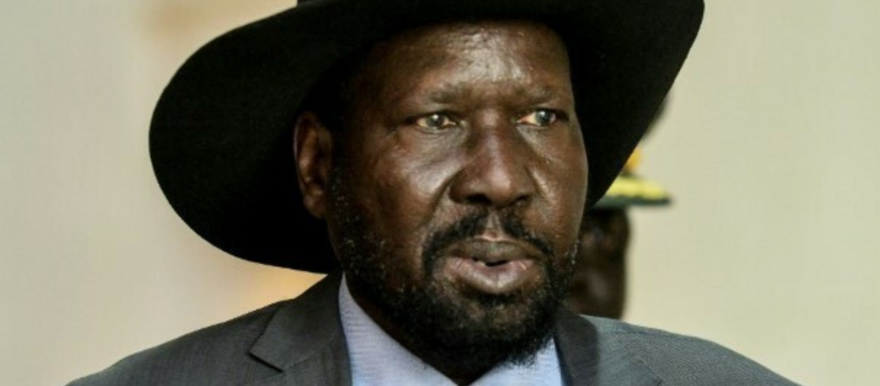South Sudan’s President Salva Kiir, while closing the sixth governors’ forum in Juba on Wednesday, tasked the governors and administrators to implement the resolutions and recommendations of the just concluded meeting.
He said no effort must be spared in following up and realizing the resolutions.
“All attempts must be made to follow up on the resolutions and recommendations of the sixth governor’s forum. As we walk away from this hall, we all need to remember that one criticism of the governors’ forum is the lack of follow-up on its resolutions,” Kiir said. “Let us address this lack of follow-up on the resolutions collectively at all levels of government. Failure to take this public concern seriously will erode public confidence in the government on the importance of this annual gathering.”
President Kiir also repeated his call to the UN Security Council to lift the arms embargo on South Sudan.
“With the first phase of the training and graduating the unified forces that are now behind us, we will intensify our call for the lifting of the unjustified arms embargo on our country,” Kiir said. “Even though we have graduated these forces with sticks, it happened because we did not have any choice but to pass out the trained forces. “We need arms to defend our country from external aggression, and I am joining you today to call upon the UN to lift this unjustified arms embargo.”
On the Community of Sant’Egidio mediated Rome Peace Talks between the government and the holdout opposition groups, Kiir noted that his administration was open to discussing peace with the Non-Signatory South Sudan Opposition Group (NSSSOG).
“The holdout groups have not shown sincerity in honouring the ceasefire agreement. They continue to lay road ambushes. Just this past week, we were preparing to go to Rome Peace Talks, and then they ambushed and killed people along the Juba-Nimule highway,” he said. “With this, we have decided to suspend the talks. I have called off the Rome talks until we get a positive response from the rebels.”
The president said he has invited the Community of Sant’Egidio to Juba to share his concerns.
Meanwhile, Louis Lobong Lojore, the governor of Eastern Equatoria State, said the national government should avail sufficient resources to the states to improve security.
“The states do not have enough human and material resources to address insecurity, so it requires the national government to give support,” he said. “For example, in Lakes State, the governor was supported by the national government and was given human and material resources, logistics, and that is why the security situation is calm there now. So, for other states with insecurity, we need the national government to intervene.”
On his part, Deng Deng Akon, the speaker of the Council of States, commended the participants at the governor’s forum for their frank and open discourse.
“This year’s forum aims at speeding development projects, promoting service delivery, social dialogue among our people and communities, and enhancing communication among the various levels of government,” he said. “It also sought to create a smooth environment for an effective, speedy implementation of the remaining key provisions of the agreement on the roadmap to a peaceful end to the transitional period of the peace agreement.”
The sixth governors’ forum came up with 83 resolutions and recommendations to address peace and security issues, governance, the economy, and the delivery of essential services, among others.




